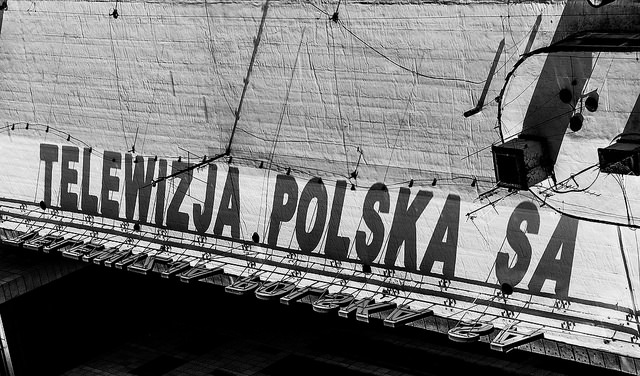Polish media remain under constant pressure from ongoing government reforms, aimed at bringing the press under tighter political control. Since the right-wing Law and Justice Party (PiS) won both the 2015 presidential and parliamentary elections, several events have fundamentally changed the media system.
At the end of 2015, amendments introduced to the country’s media law authorised the government’s Ministry of Treasury to nominate the boards of the two state-owned broadcasters, Polish Television (TVP) and Polish Radio (PR). As a result of programming changes implemented after this move, many well-known editors and journalists were forced to quit their jobs with the public broadcasters.
In July last year the National Media Council (NMC) was established. The NMC, whose members are appointed by parliament and the president, has the power to appoint the management and supervisory boards of TVP, PR and the Polish Press Agency. This move brought all public service media under one government umbrella. In practice this means they are under the constant ‘care’ of Law and Justice politicians – who make up the majority of NMC members, (three out of five).
The NMC also announced it wanted to underline public broadcasting’s “national mission”. Polish history must become an important part of their programming in future, to encourage a sense of Polish patriotism, the Council said. It is unlikely criticism of Poland’s history will be aired by any public broadcasters in future, media specialists believe. Many are concerned the new emphasis on “national” content has already led to incidents of self-censorship by journalists.
Fears over impact of the ruling party’s close interest in the media were recently confirmed. An analysis of the media content of the three TVP channels revealed significant differences between the amount of air-time devoted to ruling-party leaders, compared to opposition leaders. The differences are particularly significant when measured against the amount of coverage given to key government figures before the recent media reforms.
Some of the PiS’s proposed changes could increase funding for public service broadcasting. The NMC is discussing the introduction of a new audiovisual media tax, payable by almost every tax-payer. This would replace the current licence fee, of approximately 48 euro per year, currently paid by only one in three users.
Watching government reforms from the sidelines, private TV and radio stations might feel they are protected from political interference; however it was recently revealed that the PiS had unsuccessfully tried to buy one of Poland’s biggest commercial TV stations, TVN, from Scripps Networks Interactive, an American company.
On many occasions, political leaders from the ruling party have suggested that the government is willing to retake or more precisely ‘re-Polonise’ dailies, especially regional newspapers. Since 2013, Verlagsgruppe Passau, a German newspaper publisher, has owned the majority of regional titles in Poland (via Polska Press Grupa, a VGP subsidiary). This seems to be a thorn in the side of the ruling PiS.
Jarosław Sellin, the Culture and National Heritage Deputy Minister, and Barbara Bubula, PiS MP, have recently made clear that plans to re-Polonise the country’s media ownership is more than media hype.
In this context, legislative problems with media law (part of the so-called small media bill was recently recognised as unconstitutional), or controversial limitations on journalists hanging a bit too freely around the parliamentary main building’s corridors look almost insignificant.
You might also be interested in:
What exactly is happening to Poland’s media?
Image: Filip Bramorski, Flickr, Creative Commons licence
Tags: Democracy, Eu, Law and Justice Party, media, PAP, PiS, Poland, Polish Radio, Politics, Press freedom, public service broadcasting, TVN, TVP













































